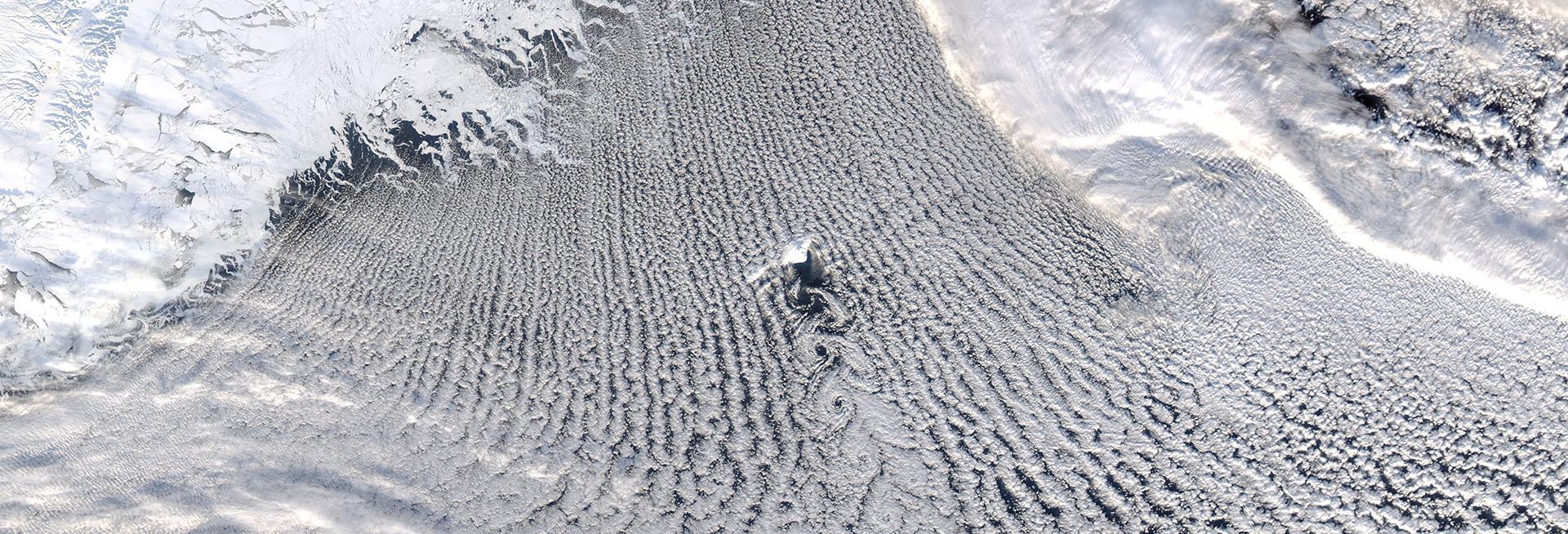Timings for recording:
(00:00) Prof Tim Woollings - Welcome and introduction to Atmospheric, Oceanic and Planetary Physics and Information on applications
(18:10) Professor David Marshall - Overview of ILESLA
(30:54) Professor Philip Stier - Overview of Intelligent Earth CDT
Short supervisor talks on research areas:
(41:00) Prof Thaddeus Komacek, (46:53) Dr Milan Kloewer, (53:19) Prof David Marshall, (59:46) Prof Philip Stier, (1:04:49) Dr Anu Dudhia, (1:09:51) Prof Tim Woollings, (1:14:52) Prof Myles Allen, (1:21:36) Prof Neil Bowles, (1:28:23) Dr Carly Howett & (1:33:30) Prof Patrick Irwin
The University of Oxford has an outstanding global reputation for its teaching, research and contributions to society. The University of Oxford combines rich history and tradition with the innovative and forward-thinking approach of a modern university. Graduate students are key to our academic community, and join our world-leading academics in tackling the most important questions we face today.
Students studying for a DPhil (PhD) in Atmospheric, Oceanic and Planetary Physics (AOPP) will focus on either Planetary and Exoplanetary Physics or Climate Physics.
Our research focuses on the study of physical processes in the atmospheres, surfaces and oceans of the Earth and other planets, using experimental, theoretical and computational techniques. Candidates may also want to look at DPhil in Astrophysics projects.
The University and colleges are doing more than ever to increase the number of promising postgraduate students from under-represented groups at Oxford. AOPP embraces the benefits that a diverse department brings and strongly encourages applications from students who are passionate and excited about their subject regardless of background. Further information on graduate access programs within the University of Oxford is available here.
Interdisciplinary Life and Environmental Science Landscape Award (ILESLA)
Atmospheric, Oceanic and Planetary Physics is one of the core departments of the Interdisciplinary Life and Environmental Science Landscape Award as it includes a highly relevant Climate and Earth stream.
Candidates who wish to study climate physics should therefore consider applying to the ILESLA as this offers a funding route to ultimately pursue research in Atmospheric, Oceanic and Planetary Physics.
The ILESLA has a Training Programme where students will undertake an in-depth programme of cohort-based, experiential learning.
Further information on applying to the ILESLA can be found here.
Intelligent Earth Centre for Doctoral Training (CDT) in Artificial intelligence (AI) for the Environment
Intelligent Earth brings together academics from key environmental science and AI departments through five closely connected themes. One of these themes is Climate Science.
Candidates who wish to study climate physics and have an interest in AI should consider applying to the CDT as it provides fully funded studentships with the opportunity to ultimately pursue research in Atmospheric, Oceanic and Planetary Physics.
In year one, you will take core courses and computational skills training courses, followed by advanced cross-cohort courses, responsible AI training, and professional skills training modules, culminating in a three-month research project followed by the annual hackathon and conference. Course free periods will be used for consolidation, supervisor matching, and DPhil proposal development. The transition to AOPP typically happens at the end of the first year.
Further information on the course structure and applying to Intelligent Earth can be found here.
Funding
Graduate study at Oxford is a rewarding experience, but also a significant investment.
There is wide variety of funding opportunities available at Oxford. Scholarships are usually awarded on the basis of academic excellence and potential, and cover some or all course fees and/or provide a grant for living costs for the period of fee liability. For further information please see here.
Several UKRI scholarships in planetary physics (linked to STFC) are available each year for the DPhil in Atmospheric, Oceanic and Planetary Physics course. UKRI scholarships in climate physics are administered via applications to the Oxford Doctoral Training Partnership (DTP) in Environmental Research and Intelligent Earth Centre for Doctoral Training (CDT) in Artificial intelligence for the Environment.
Please note that in order to be considered for any of the UKRI funding sources, you are required to submit your application by Thursday 8th January 2026.
How to apply
All applications directly for a DPhil in Atmospheric, Oceanic and Planetary Physics must be made through the central University of Oxford graduate admissions website. You will find information about applying to any of the six DPhil courses on offer at the Department of Physics here.
It is important to note that you are not required to select a final project or supervisor at the point of application. While it is useful for us to know the broad areas you are interested in, we do not expect you to have made a final decision on your preferred projects and there will be opportunities to discuss your interests before offers are made.
Important Notice - Applicants are required to submit an application for each Physics DPhil Course they are interested in, noting that you are allowed to apply to a maximum of 3 PGR courses total. If you wish to apply for more than 3 courses, please write to the relevant administrator for advice.

